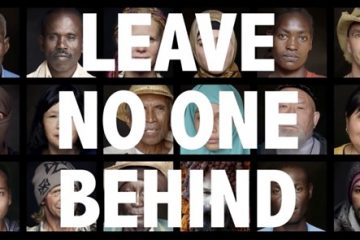Effective public health interventions must be dynamic, extending beyond a clinical purview to address health inequities between the global north and south. Global health “involves many disciplines within and beyond the health sciences” and, therefore, should be able to account for and meet the needs of local populations by stepping out of the western biomedical perspective. However, when dominant institutions and NGOs are rooted in western culture, intervention design often fails to account for the role of African ontology in influencing health-seeking practices and behaviors. Neoliberalism, settler colonialism, and power imbalances between the western hemisphere and the African continent also play their part in this theological and cultural dissonance.
Africa is a multicultural continent comprising a multitude of language and ethnic groups. More often than not, Western scholarship defines other cultures within the limits of a eurocentric framework. The Western worldview is Hellenistic and binary, rooted in a perspective out of context with the African tradition of pluralism. Consequently, many scholars indicate the religious climate of Africa is composed of three religious practices: Traditional religion, Christianity, and Islam. This dichotomous thinking may be accessible to non-African scholars; however, such c account for the great diversity of spiritual and religious practices throughout the continent. African scholars assert that African religion is polytheistic and that overcoming the traditional, Western Hellenistic mindset will allow public health practitioners to design culturally appropriate and effective interventions, aiming to improve mental and physical health on a population level. This is possible because local belief systems are deeply intertwined both with ideas of wellbeing and health-seeking behaviors.
On the one hand, in traditional African ontology, appeasing and honoring the ancestors is an important aspect of everyday life. The ancestors are spirits that influence the happenings of the living, ergo health issues may be considered from the purview of unhappy ancestors rather than a personal affliction to be cured with medical treatment. For example, research conducted in Zimbabwe found that belief systems in the Chiweshe communal lands indicated that “chronic illnesses are caused by avenging spirits, ancestors calling a person, witchcraft, failure to honor one’s ancestors, globalisation and modernisation”.
On the other hand, practices such as shamanism, fetishism, and witchcraft may be a preventative factor to people seeking medical services over traditional divination to address illness or injury. They allow spiritual practitioners and patients to diagnose the cause of an ailment of spiritual origin and commonly employ ritual behaviors. These behaviors are highly pragmatic in how they help provide a sense of control or understanding in an otherwise chaotic or uncertain situation, such as childhood illness, chronic diseases such as HIV, or physical injury. This may be the reason why researchers in Zambia and Ethiopia found that parents of children born with disabilities were less likely to seek medical treatment as they believed congenital disabilities to be a source of witchcraft or bad luck. In settings where medical treatment is inaccessible, seeking religious expertise to cure ailments is highly logical.
For global health to actually become global, all practitioners must come to the realization that it is impractical to apply or interpret Western frameworks in non-western contexts. Research notes the importance of further investigating the role spiritual practitioners play in supporting health and wellbeing in context with health delivery. In settings where medical care is accessible, health workers should become acquainted with the local context to establish means through which ritual behavior and spiritual practices may coexist with clinical care. We must address the secular biomedical nature of western medicine and not discredit traditional practices but instead integrate them with healthcare delivery. Establishing respect could support iterative care systems where referral can occur between leaders of traditional methods and medical practitioners. The next steps, according to Dr. Kevin Onongha, include “the integration rather than segregation of traditional healers in health delivery, the need for better collaboration and cooperation between governmental and non-governmental agencies, the legal framework for traditional healers to operate, and preventive health care”.
The colonial imposition of western worldviews and continued subversion of Eurocentric theoretical frameworks is a great hindrance to effectively serving the health needs of Africans. Cultural competence and instruction of African worldviews should be mandated for researchers, IGO’s, and NGOs before implementing interventions or undertaking research. We can’t rely on germ theory when the cultural context calls for the inclusion of spirituality and philosophy in medicine. Westerners must supersede binary cultural frameworks to deliver healthcare on a continent that views disease as dynamic and multifaceted in causation.



0 Comments